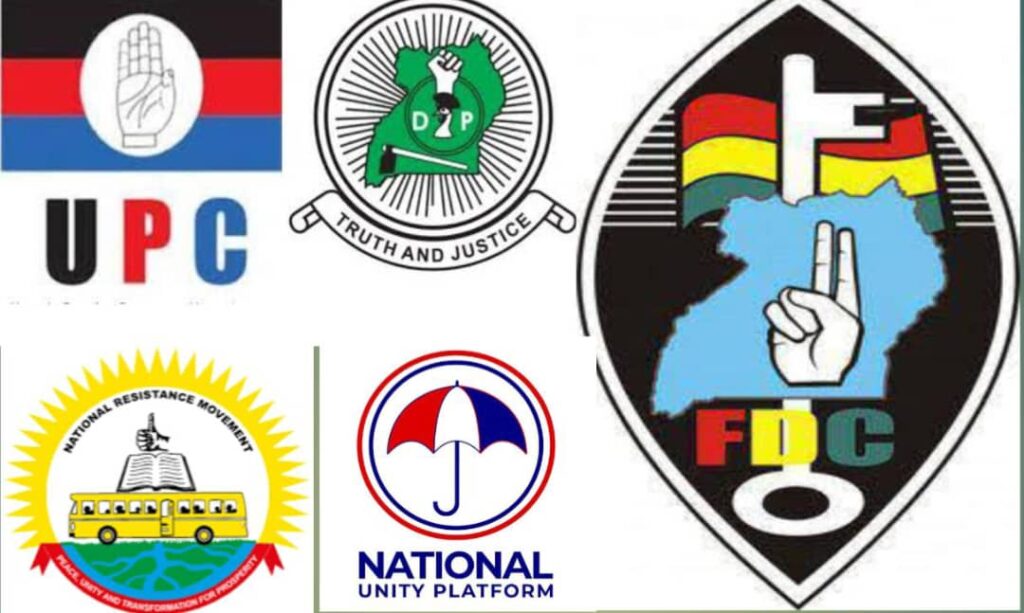By Amiri Wabusimba.
Opposition politics in Uganda, as in much of Africa, finds itself entangled in a paradox: parties that demand free, fair, and transparent elections from the ruling regime often fail to uphold the same democratic principles within their own ranks.
The upcoming 2026 general elections and the Kawempe North by-election, triggered by the death of Hon. Muhammad Ssegirinya, have once again laid bare the deep-seated contradictions within Uganda’s opposition.
These events serve as a crucial litmus test: Can opposition parties offer a credible alternative to the status quo, or are they merely mirroring the very political dysfunction they seek to replace?
National Unity Platform (NUP) recently introduced debates in its primaries for the Kawempe North by-election an unprecedented move that initially raised hopes of a shift towards transparency.
Yet, the real question remains: Was this a sincere commitment to internal democracy, or a one-time spectacle to appease critics?
As the Ugandan proverb goes, “The more the monkey climbs the tree, the more it exposes its nakedness.” If the debate was merely a political show, then the closer NUP and other opposition parties claim to be to democratic ideals, the more their internal contradictions will be exposed.
Despite receiving applications from nine aspirants and following their internal process, NUP ultimately fronted Luyimbazi Elias Nalukoola, a former Democratic Party (DP) stalwart and legal advisor.
His selection has sparked controversy, raising concerns over whether the decision was guided by ideological conviction or transactional politics.
The pattern is familiar: across Africa, opposition parties routinely prioritize strategic alliances over grassroots representation, diluting their founding principles in the name of political expediency.
Uganda’s opposition struggles mirror broader trends across the continent. In Kenya, Raila Odinga’s Orange Democratic Movement (ODM) has frequently been accused of sidelining grassroots leaders in favor of well-connected elites, with party primaries marred by allegations of favoritism.
In Nigeria, defections between the ruling All Progressives Congress (APC) and the opposition People’s Democratic Party (PDP) are so common that ideological consistency has become meaningless, as politicians hop between parties based on personal gain.
Ugandan opposition, particularly NUP, risks following this trajectory with foot soldiers (ordinary men and women) who have faced police brutality and persecution to popularize the party now find themselves sidelined in favor of political elites, lawyers, and businessmen with the right connections.
One of the biggest threats to opposition credibility is the increasing monetization of party endorsements.
Allegations of “cash-for-tickets” politics have surfaced within NUP, with claims that aspirants with deep pockets are prioritized over those with genuine grassroots appeal.
Nalukoola’s selection for Kawempe North has raised similar concerns.
Was he chosen based on ideological alignment with NUP, or was his selection the product of financial and political transactions?
If opposition parties continue to engage in opaque selection processes, they risk losing the moral high ground against ruling parties they accuse of electoral malpractice.
Just like a Ugandan proverb “A man who points at another’s house with a dirty hand forgets that his own house is burning.”
If opposition parties criticize the ruling regime for corruption and lack of transparency but fail to clean up their own houses, they will struggle to inspire confidence among voters.
The introduction of debates in the NUP primaries marked a potential shift in Uganda’s political culture.
But will this model be replicated in future elections, or was it a one-time event designed to project an image of transparency?
If NUP is serious about fostering democracy, debates should become a mandatory part of primaries rather than an isolated case.
However, Uganda’s political history suggests that internal democratic reforms are often abandoned when they threaten entrenched power structures.
What worked in Kawempe North may not necessarily work in other constituencies, particularly rural areas where different political dynamics are at play.
If debates disappear in other regions, it will confirm suspicions that the exercise was merely a performance tailored for urban voters.
Opposition parties in Uganda must recognize that their survival depends not just on their ability to challenge incumbents but also on their ability to govern themselves democratically.
Transparent internal debates, rigorous candidate vetting, and meaningful grassroots inclusion are essential if opposition movements are to remain credible.
The real backbone of any political movement is not in boardrooms or legal chambers but in the streets, the markets, the ghettos, and the villages where ordinary Ugandans have put their lives on the line for change.
Yet, if they continue to be sidelined in favor of political elites, opposition parties may soon find themselves without a dedicated support base.
As Uganda moves toward the 2026 elections, the electorate is watching closely.
The foot soldiers who carried the opposition on their backs will not be fooled by rhetoric alone.
They demand and deserve a say in the direction of the movement they built with blood, sweat, and tears.
If opposition parties fail to recognize this, they will soon discover that the true barrier to change is not just the ruling party it is their own internal contradictions.
The Kawempe North by-election is more than just a local contest it is a defining moment for Uganda’s opposition.
Will they honor their foot soldiers, or will they continue to betray them for short-term political gains? The answer will determine not just the outcome of the by-election but the future of opposition politics in Uganda and beyond.
If opposition leaders fail to institutionalize transparency, voters will see through the façade and if they continue down the path of political elitism and financial influence, they may unwittingly secure the very status quo they claim to oppose.
In the end, true political transformation will not come from speeches or televised debates alone it will come from genuine accountability, both within parties and in the broader political arena.
For Uganda’s opposition, the stakes have never been higher. The time for self-correction is now. The electorate is watching, and history will judge.

Amiri Wabusimba is a diplomatic Scholar, Journalist, political analyst and Human Right activist. Tel: +56775103895 email: Wabusimbaa@gmail.com
Have An Advert Or Article You Want Us To Publish? Whatsapp: +256786288379 or email binocularugnews@gmail.com
